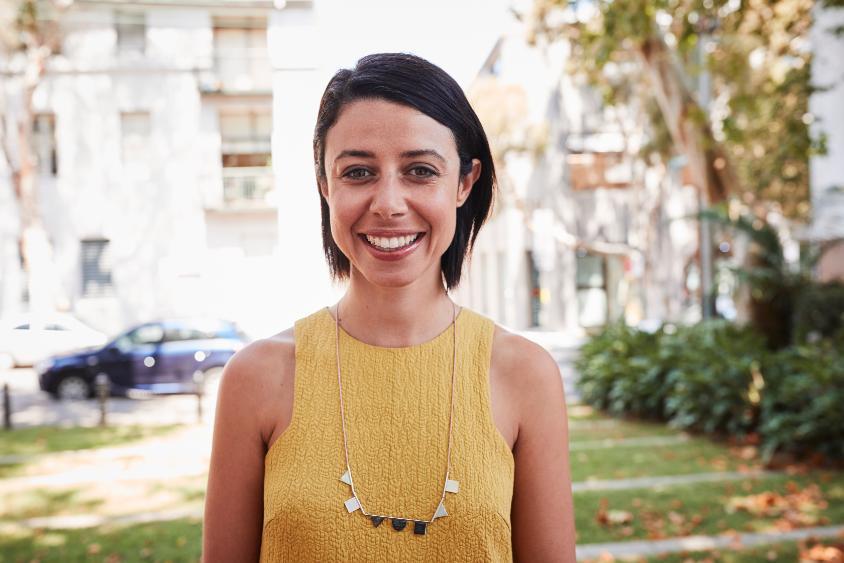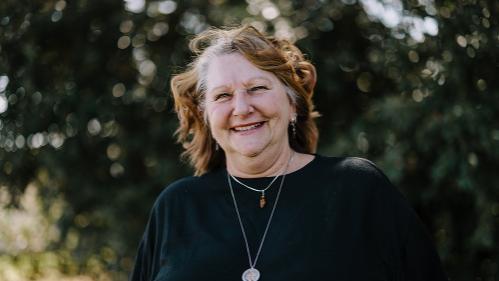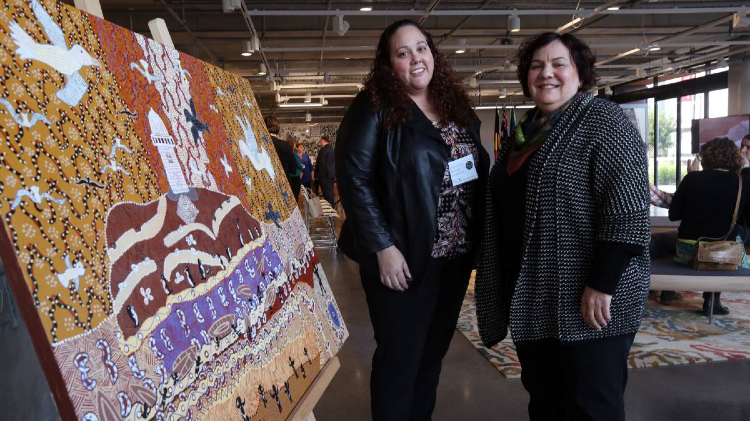Improving health outcomes of First Nations People is one of the biggest challenges facing Australia today. To tackle this problem—on a local and national scale—those working on the frontline in health first need a greater understanding of the impact of the widespread trauma experienced by Indigenous Australians to drive positive change.

Save up to 75% off postgraduate course fees.
Study
Indigenous
trauma & recovery
Get up to 75% off your fees in 2025
UOW is guaranteeing Commonwealth Supported places for eligible domestic students studying postgraduate health courses in 2025. This means the Australian Government will pay up to 75% of course fees. There’s never been a better time to get started on your next qualification.
ELIGIBILITY & FEES Apply now
Key facts
Graduate Certificate in Indigenous Trauma and Recovery Practice
A recognised diploma, degree, graduate certificate, or in the absence of formal qualifications, provide evidence of professional equivalence that demonstrates experience working within Indigenous communities.
All applicants are required to provide a professional resume and provide a personal statement of no more than 200 words that describes the skills and experience that you have that will make you successful in this course.
Please check Course Finder for detailed information
Master of Indigenous Health
The Master of Indigenous Health is open to anyone with a bachelor’s degree, or a Graduate Certificate or Graduate Diploma. Recognition may be given for relevant work experience or prior learning.
Applicants who do not meet the above requirements can commence in the Graduate Certificate in Indigenous Trauma and Recovery Practice as a pathway into the Master of Indigenous Health.
Graduate Certificate in Indigenous Trauma and Recovery Practice
The Graduate Certificate in Indigenous Trauma and Recovery Practice is a 6-month full-time course. In this course, you can not choose to study part-time.
Master of Indigenous Health
The Master of Indigenous Health can be studied over 1.5-years full-time. Students can also choose to study part-time and work at your own pace. Students who are working full-time often study part-time, choosing to complete one to two subjects per semester, taking three years to complete the full degree.
Graduate Certificate in Indigenous Trauma Care and Recovery Practice
The Graduate Certificate in Indigenous Trauma Recovery Practice comprises of one core subject, Indigenous Trauma Care and Recovery Practice (18 credit points) and one elective subject (6 credit points). Students who have community-based service experience may be eligible for credit and will not need to complete an elective subject. Speak to the Academic Program Director prior to commencing this course to discuss credit.
The core subject, Indigenous Trauma Care and Recovery Practice responds to issues that have particular relevance in Indigenous communities in Australia. It will provide specific skills so that graduates can work from a trauma informed approach. It is a multi-disciplinary program where students will apply critical thinking, collaborative practices and judgement when working individually and within communities across service provision with children, families and communities who may have experienced trauma.
Most importantly the course will focus on applying Indigenous social, and emotional wellbeing principles, practices and healing frameworks. Utilising Aboriginal and western concepts of trauma, this course focuses on the contributing factors to experiences of trauma, considering historical, cumulative impact of trauma and current day experiences. This course focuses on the impacts of racism and other factors that can have major health implications on Indigenous Australians, including the pathophysiology and clinical aspects of the body response to trauma. Additionally, this course will ASSIST students with the skills to respond to trauma in individuals and communities, while also being able to provide services that are trauma informed.
View the Course Handbook for the complete course structure and learning outcomes.
Master of Indigenous Health
The Master of Indigenous Health requires the successful completion of 72 credit points.
Core subjects include:
- Indigenous Trauma Care and Recovery Practice
- Indigenous Research Methodologies
- Indigenous Evaluation and Quality Improvement
Plus
- A minor OR major research project
- A research subject (see range of options)
- Elective health or leadership subjects (see range of options).
For electives on offer and complete course structure, view the Course Handbook.
| Course | Session | Session Details |
|---|---|---|
| Graduate Certificate in Indigenous Trauma and Recovery Practice | 2025 ITRP |
Commencing 16 June 2025 |
| Master of Indigenous Health | 2026 Autumn |
Commencing March 2026 |
Graduate Certificate in Indigenous Trauma and Recovery Practice
| Campus | Total Course Fee* |
|---|---|
| UOW Online |
$4,070-4,656 (2025) |
Scholarships
Aboriginal or Torres Strait Islander people working in a health-related discipline located in a rural or remote area may be eligible to apply for a scholarship to support course costs. Enquire now for more information.
Master of Indigenous Health
| Campus | Total Course Fee* |
|---|---|
| UOW Online |
$12,211-13,969 (2025) Dependent on subject selection |
The above tuition fees are the amount payable for a Commonwealth Supported place.
Commonwealth Supported Places (CSPs) are University places where, for eligible domestic students, tuition fees are made up of two parts:
- an Australian Government contribution (for some courses, up to three-quarters of the tuition fee is funded by the Australian Government)
- a student contribution (which may be deferred and repaid later via a HECS-HELP loan)
To be eligible for this fee subsidy, you must meet the following criteria: Be a domestic student, i.e. an Australian or New Zealand citizen, a permanent resident of Australia or a permanent Australian Humanitarian visa holder.
*Total indicative course tuition fees shown is for a Commonwealth Supported place. These fees are based on normal course length and progression and are subject to change from year to year. For up to date information on course structure and fees, refer to the UOW Course Handbook.
The Master of Indigenous Health and Graduate Certificate in Indigenous Trauma and Recovery Practice are offered online.
UOW Online
UOW integrates online learning into nearly all subjects. However, when your course is offered through UOW Online, 100% of your course will be delivered online, including all tutorials, class discussions and submission of assessments. This delivery mode allows you to study from anywhere in the world with an internet connection.
Studying online still means you will be able to connect with our passionate lecturers and teachers and network with your classmates.
Sharyn McDonogh’s UOW journey
“My degree has changed me. It’s improved my life, my ability to engage with others outside of who I would normally be impacted by.” For Sharyn, education became both a form of empowerment and a bridge to new opportunities.
Sharyn's story
Drive positive change in Indigenous health
- Strong community partnerships
- Informed by Indigenous-led research
- Co-designed with community
- Tailor to your career goals
The University of Wollongong has worked hard to establish and maintain connections with local aboriginal community organisations, Aboriginal Community Controlled Health Organisations and Local Health Districts through the research projects led by researchers in Ngarruwan Ngadju, First Peoples Health & Wellbeing Research Centre.
Ngarruwan Ngadju is an Indigenous-led health and wellbeing research centre located within the School of Medical, Indigenous and Health Sciences at the University of Wollongong. Our work centres the needs and priorities of First Peoples by undertaking research that is high impact, innovative, strengths-based and beneficial to Community.

Pictured: Dr Marlene Longbottom and Professor Kathleen Clapham at the Ngarruwan Ngadju: First Peoples Health and Wellbeing Research Centre launch at the UOW Innovation Campus.
Academics associated with Ngarruwan Ngadju lead and teach indigenous health subjects in the Master of Indigenous Health, including the Centre's Director Kathleen Clapham who is the Academic Program Director.
The Ngarruwan Ngadju team of academic and professional staff is committed to working collaboratively on research which addresses the needs and priorities of First Peoples communities. They have a key focus on building networks and partnerships, advancing Indigenous health and wellbeing scholarship and research methodologies.
Research themes:
- Building resilient communities
- Lifelong health and wellbeing
- Injury, trauma and recovery
- Equitable systems and policies

The core subjects in the Master of Indigenous Health and the Graduate Certificate in Indigenous Trauma Recovery Practice were co-designed with a broad range of First Nations people and Indigenous organisations to deepen students’ understanding of the impact and effect of trauma in the indigenous community, and equip graduates with culturally-safe and culturally appropriate research skills and methodologies.
The Master of Indigenous Health allows you to customise the course to your career goals – choose from a range of research, public health or health leadership subjects.
Some of the subjects you can choose from include:
- Allied Health Practice
- Emotional Intelligence for Leaders
- Foundations in Public Health
- Global Indigenous Health
- Health Economics, Policy and Promotion
- Health in All Policies
- Introduction to Health Informatics
- Leading Change In Healthcare
- Principles of Health Research
- Social Determinants of Indigenous Health
Check the Course Handbook for the complete course structure and subject list.

A platform for empowerment
The Graduate Certificate was really the foundations of me wanting to understand trauma, the impacts of it, what causes it, where does it come from, and then how do I use that knowledge to manage not only my own trauma, but then to empower people to want to take control of their own trauma and their own journeys, to move from surviving life to thriving in in life.
What next?

Fill out your details and we will reach out to provide more information.

Register for our online webinar with course experts to be held on 21 May 2025.

Book a time to speak to a postgraduate specialist over the phone.

Applying to study at UOW is quick, easy and secure.
The course was super beneficial. Not only for the work I do in communities all across the country but also for me personally. The course gave me the evidence and science behind the work that I have been rolling out in community for a number of years.
Support for postgraduate students

If you have questions about postgraduate study, book a consult with one of our postgraduate course specialists.

In 2025, UOW will offer Commonwealth supported places (CSP) to eligible Domestic students for all postgraduate coursework degrees, which means you could save up to 75% off your course fees.

UOW Careers service can help you gain professional experience, provide advice on finding new opportunities, applying for roles, resume reviews via our online appointment service.

UOW understands that postgrad students may need study support. UOW offers online study support via our Student Success Specialists and Learning Skills Advisors.
I found the Indigenous Trauma Recovery practice course extremely beneficial for my work at Waminda. The course improved and deepened my understanding of how to work through a trauma-informed lens with clients. Understanding trauma and how deep and far it can run is confronting and complex, however it was taught with sensitivity and cultural safety. I believe this has and will continue to improve outcomes with programs and clients. The course was delivered in a flexible and supportive format.
Find out more
Fill out your details and we will reach out to answer any questions you may have about our courses, fees, dates or the application process. You can choose to speak to an Indigenous staff member, just tick the box and we will get back to you to arrange a phone call at a time convenient to you.
Thank you for your submission. One of our Specialists will be in touch shortly.